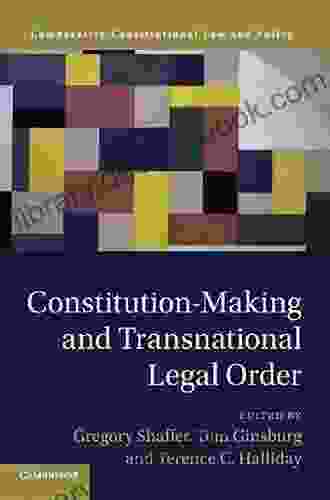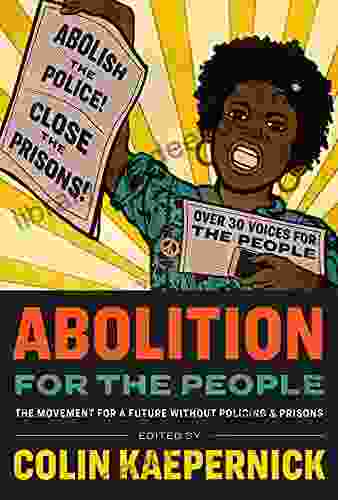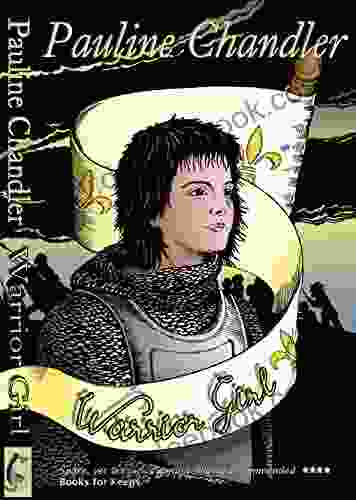Constitution Making and Transnational Legal Order: A Comparative Constitutional Perspective

5 out of 5
| Language | : | English |
| File size | : | 5175 KB |
| Text-to-Speech | : | Enabled |
| Screen Reader | : | Supported |
| Enhanced typesetting | : | Enabled |
| Word Wise | : | Enabled |
| Print length | : | 314 pages |
Constitutions are fundamental legal documents that establish the framework for a political system and define the relationship between the government and the people. They are typically drafted and adopted by a constituent assembly or a constitutional convention, and they usually contain provisions on the structure of government, the rights of citizens, and the principles of governance.
In recent years, there has been a growing interest in the study of constitution making from a transnational legal order perspective. This approach examines the ways in which international law and global governance influence the development and implementation of constitutions. It also considers the impact of transnational legal norms on the interpretation and enforcement of constitutional provisions.
This article provides a comprehensive overview of constitution making and transnational legal order from a comparative constitutional perspective. It explores the theoretical foundations, historical developments, and contemporary challenges in this field. The article also discusses the role of international law and global governance in shaping constitutional processes and outcomes.
Theoretical Foundations
The theoretical foundations of constitution making and transnational legal order can be traced back to the work of scholars such as Immanuel Kant, Georg Jellinek, and Hans Kelsen. These scholars argued that constitutions are not simply legal documents, but also expressions of the social and political values of a society. They also emphasized the importance of international law in shaping constitutional development.
In the 20th century, the work of scholars such as Karl Loewenstein, Louis Henkin, and David Kennedy further developed the theoretical foundations of this field. These scholars explored the relationship between constitutional law and international law, and they argued that the two systems are increasingly interconnected.
Historical Developments
The historical development of constitution making and transnational legal order can be divided into three main periods: the early modern period, the 19th century, and the 20th century.
Early Modern Period
The early modern period (16th-18th centuries) saw the development of the first modern constitutions. These constitutions were typically drafted by monarchs or ruling elites, and they often reflected the principles of natural law and the social contract theory.
During this period, international law also began to develop as a distinct body of law. The Treaty of Westphalia (1648) established the principle of state sovereignty, and it paved the way for the development of a system of international relations based on the rule of law.
19th Century
The 19th century was a period of significant constitutional development. The American Revolution (1776) and the French Revolution (1789) led to the adoption of new constitutions that were based on the principles of popular sovereignty and the separation of powers.
During this period, international law also continued to develop. The Hague Conventions (1899 and 1907) established rules for the conduct of war, and the Geneva Conventions (1864 and 1906) established rules for the treatment of prisoners of war.
20th Century
The 20th century was a period of unprecedented constitutional development. The aftermath of World War II led to the adoption of new constitutions in many countries, and the United Nations Charter (1945) established a new international order based on the principles of peace and security.
During this period, international law also continued to develop. The Universal Declaration of Human Rights (1948) established a set of universal human rights that are now recognized by most countries in the world.
Contemporary Challenges
Constitution making and transnational legal order face a number of contemporary challenges. These challenges include:
- The rise of populism and nationalism
- The increasing interconnectedness of the world
- The challenges of climate change
- The rise of new technologies
These challenges require new approaches to constitution making and transnational legal order. Constitutions must be drafted in a way that is responsive to the needs of the people, while also taking into account the global context in which they will be implemented.
International law must also be updated to address the challenges of the 21st century. The existing international legal framework is not always adequate to deal with new issues such as climate change and the rise of new technologies.
The Role of International Law and Global Governance
International law and global governance play an increasingly important role in shaping constitutional processes and outcomes. This is due to a number of factors, including the increasing interconnectedness of the world, the rise of transnational corporations, and the global reach of new technologies.
International law can play a role in shaping constitutional processes in a number of ways. For example, it can establish minimum standards for the protection of human rights, it can provide a framework for the conduct of elections, and it can help to resolve disputes between states.
Global governance can also play a role in shaping constitutional outcomes. For example, the United Nations can provide technical assistance to countries that are drafting new constitutions, and the World Bank can provide financial assistance to countries that are implementing constitutional reforms.
Constitution making and transnational legal order are two closely related fields that are becoming increasingly important in the 21st century. The challenges of populism, nationalism, climate change, and new technologies require new approaches to constitution making and transnational legal order. International law and global governance can play a key role in shaping constitutional processes and outcomes.
By understanding the theoretical foundations, historical developments, and contemporary challenges of constitution making and transnational legal order, we can better prepare for the challenges of the future.
5 out of 5
| Language | : | English |
| File size | : | 5175 KB |
| Text-to-Speech | : | Enabled |
| Screen Reader | : | Supported |
| Enhanced typesetting | : | Enabled |
| Word Wise | : | Enabled |
| Print length | : | 314 pages |
Do you want to contribute by writing guest posts on this blog?
Please contact us and send us a resume of previous articles that you have written.
 Book
Book Novel
Novel Genre
Genre Reader
Reader Library
Library Magazine
Magazine Shelf
Shelf Glossary
Glossary Bibliography
Bibliography Preface
Preface Annotation
Annotation Footnote
Footnote Bestseller
Bestseller Classics
Classics Library card
Library card Autobiography
Autobiography Memoir
Memoir Reference
Reference Thesaurus
Thesaurus Librarian
Librarian Catalog
Catalog Card Catalog
Card Catalog Stacks
Stacks Archives
Archives Periodicals
Periodicals Study
Study Scholarly
Scholarly Reserve
Reserve Academic
Academic Journals
Journals Reading Room
Reading Room Rare Books
Rare Books Special Collections
Special Collections Interlibrary
Interlibrary Literacy
Literacy Study Group
Study Group Dissertation
Dissertation Storytelling
Storytelling Reading List
Reading List Textbooks
Textbooks Barton Press
Barton Press William L Fibkins
William L Fibkins George Orwell
George Orwell Darrell Issa
Darrell Issa Cleo Lampos
Cleo Lampos Sabrina Jeffries
Sabrina Jeffries Joyce Mitchell
Joyce Mitchell Lisa Yee
Lisa Yee Steven Mooney
Steven Mooney Kristin Lems
Kristin Lems John Bailey
John Bailey Elizabeth W Goldstein
Elizabeth W Goldstein Eric Lerner
Eric Lerner Gianluca Manzo
Gianluca Manzo Sebastian Harth
Sebastian Harth S K Hardy
S K Hardy Susie Basanda
Susie Basanda Gilbert Delahaye
Gilbert Delahaye Pam Goecke Dinndorf
Pam Goecke Dinndorf Daniel R Lynch
Daniel R Lynch
Light bulbAdvertise smarter! Our strategic ad space ensures maximum exposure. Reserve your spot today!

 Fernando BellRelationships: The Holistic Approach | Understanding the Interplay of Mind,...
Fernando BellRelationships: The Holistic Approach | Understanding the Interplay of Mind,...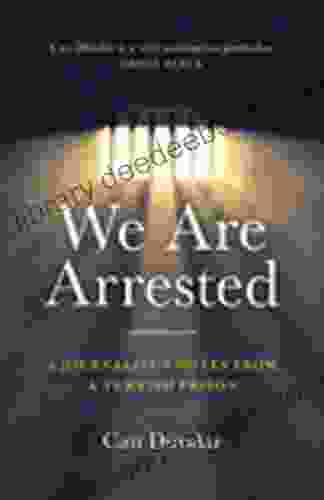
 Clarence BrooksJournalist Notes from Turkish Prison: A Harrowing Account of Repression,...
Clarence BrooksJournalist Notes from Turkish Prison: A Harrowing Account of Repression,... Corey GreenFollow ·8k
Corey GreenFollow ·8k Chandler WardFollow ·16.4k
Chandler WardFollow ·16.4k Brayden ReedFollow ·15.3k
Brayden ReedFollow ·15.3k Isaiah PowellFollow ·14.4k
Isaiah PowellFollow ·14.4k George HayesFollow ·16.3k
George HayesFollow ·16.3k Benjamin StoneFollow ·7.9k
Benjamin StoneFollow ·7.9k Elmer PowellFollow ·12.5k
Elmer PowellFollow ·12.5k Derek CookFollow ·19.1k
Derek CookFollow ·19.1k

 Ralph Ellison
Ralph EllisonHealth Care Global Viewpoints: Samantha Whiskey
Samantha Whiskey is a global health...
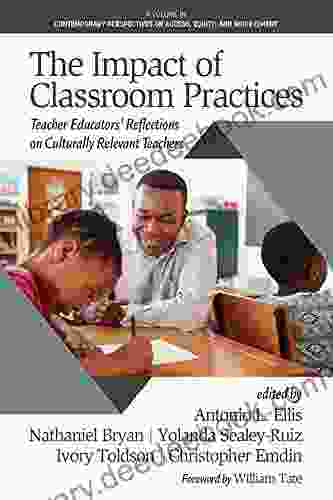
 Gabriel Garcia Marquez
Gabriel Garcia MarquezTeacher Educators' Reflections on Culturally Relevant...
In today's...
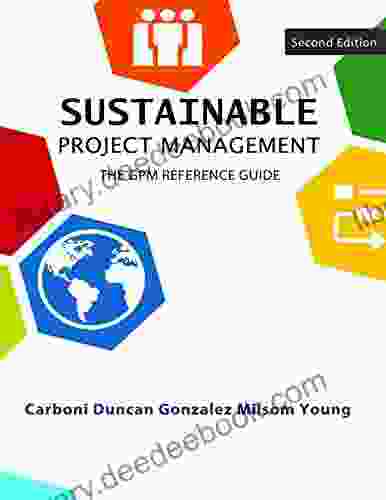
 Levi Powell
Levi PowellSustainable Project Management: The GPM Reference Guide...
In today's rapidly changing world,...

 Isaac Bell
Isaac BellThe Captivating World of "Dreaming Awake Falling Under"
A Journey Through...
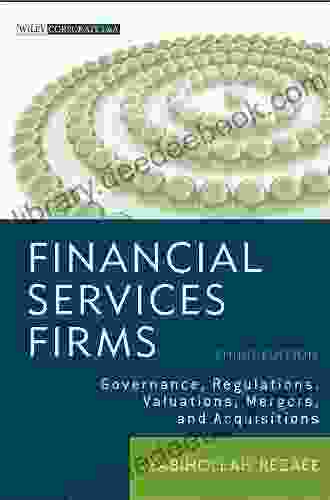
 Clarence Brooks
Clarence BrooksGovernance Regulations Valuations Mergers And...
In today's complex and ever-changing...
5 out of 5
| Language | : | English |
| File size | : | 5175 KB |
| Text-to-Speech | : | Enabled |
| Screen Reader | : | Supported |
| Enhanced typesetting | : | Enabled |
| Word Wise | : | Enabled |
| Print length | : | 314 pages |


